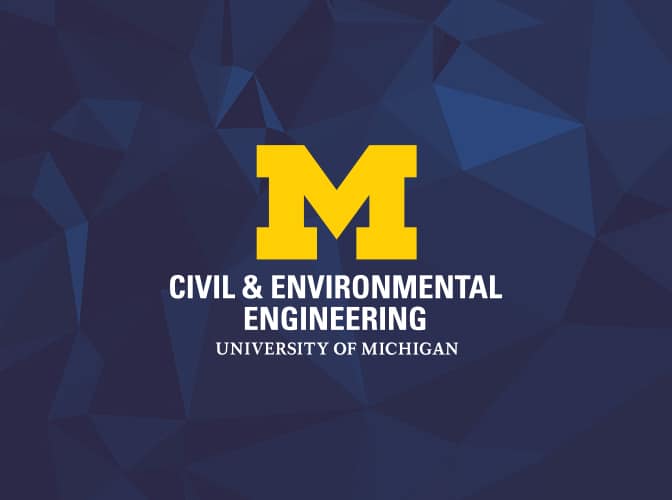
Welcome to CEE’s Newest Faculty!
Please welcome CEE’s new faculty to help further our mission of engineers in service to society.

Please welcome CEE’s new faculty to help further our mission of engineers in service to society.
To continue our momentum in bringing our Strategic Directions from theory into practice, CEE has attracted a diverse group of new faculty to support our mission. We are pleased to introduce our new faculty members:
Joshua Jack
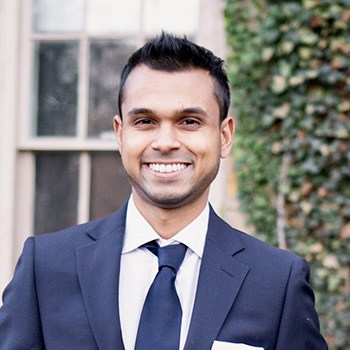
Assistant Prof. Joshua Jack comes to UM-CEE from the Andlinger Center for Energy and Environment and the Civil and Environmental Engineering Department at Princeton University, where he was a postdoctoral research scholar. His current research focuses on energy and resource recovery as part of a sustainable water-energy-climate nexus, with a special focus on process design of bioelectrochemical technologies toward scalable CO2 valorization and advanced water treatment. Prof. Jack collaborates with researchers from the Department of Chemical and Biological Engineering, as well as various DOE laboratories and private companies, such as Shell Energy.
Prof. Jack earned a BS in Civil and Environmental Engineering from the University of Massachusetts, Amherst, and holds a PhD in Environmental Engineering from the University of Colorado, Boulder. During his graduate studies, Jack obtained extensive interdisciplinary research experience at both the DOE-National Renewable Energy Laboratory and NASA Langley Research Center, and has received numerous awards, including a NASA Outstanding Research Award and NSF Fellowship.
“It is my hope that the culmination of my research can have a profound effect on how society views and uses resources, and as a new professor, it is my goal is to serve the common good and improve the human condition for as many people as possible,” Prof. Jack said. His research focuses on CEE’s Strategic Direction of Shaping Resource Flows and Adaptation.
Aleksandra “Alex” Szczuka
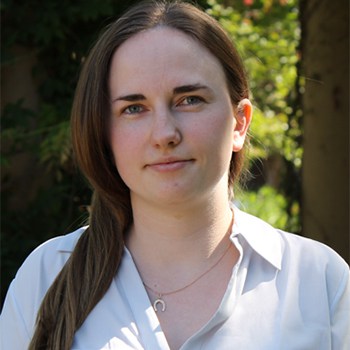
Assistant Prof. Alex Szczuka is now a tenure-track faculty member, having served as a Presidential Postdoctoral Fellow and Assistant Professor in our department. Her research, motivated by broad access to safe and affordable water, uses fundamental chemistry and microbiology to inform treatment of non-traditional water sources to safeguard public health. Prof. Szczuka is especially interested in improving emerging treatment technologies, with emphasis on those that can recover valuable water resources at lower costs. She collaborates with researchers, engineers and utilities to foster the adoption of promising technologies by practitioners. Her work has been supported by multiple fellowships, including an American Water Works Association’s Abel Wolman Graduate Fellowship, a National Science Foundation Graduate Research Fellowship and the UM Presidential Postdoctoral Fellowship.
Prof. Szczuka received a BSE degree in Chemical and Biological Engineering from Princeton University and her MS and PhD degrees in Civil and Environmental Engineering from Stanford University.
Prof. Szczuka said her research aligns with CEE’s Strategic Direction of Shaping Resource Flows. “As we turn to alternative water supplies to meet water demand and reduce water scarcity, we need to be able to treat that water and reduce the health risks associated with it, and that’s where my research comes in,” she said.
Rachel O’Brien
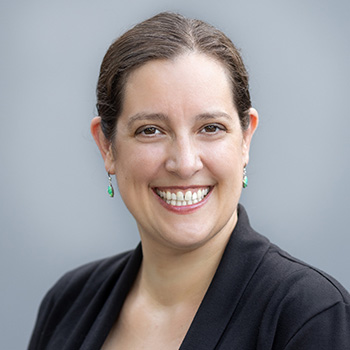
Assistant Prof. Rachel O’Brien comes to us from the College of William & Mary, where she was an assistant professor. Prof. O’Brien’s research group focuses on characterizing organic aerosol particles and organic films on indoor surfaces by studying the chemical composition and the products formed during the atmospheric aging process. Future research in her lab will also involve field and laboratory experiments looking at the role volatile chemical products play in organic aerosol formation, as well as investigations targeting photolysis as a removal mechanism for organic aerosol particles and surface films.
Prof. O’Brien earned her BA in Chemistry from Grinnell College and her PhD in Chemistry from the University of California, Berkeley, where she studied oligomeric materials in ambient secondary organic aerosol. She worked as a postdoc at Lawrence Berkeley National Laboratory imaging aerosol particles with soft x-rays, as well as at MIT, where she characterized aerosol aging with an Aerosol Mass Spectrometer.
“My research ties into the Human Habitat Experience, and looking at what people are exposed to and breathing in at home, at work, and on their commutes,” Prof. O’Brien said. “It’s looking at how we can really push for that low-carbon, low-water footprint that we need for buildings, but knowing that it’s really challenging.”
Atiyya Shaw
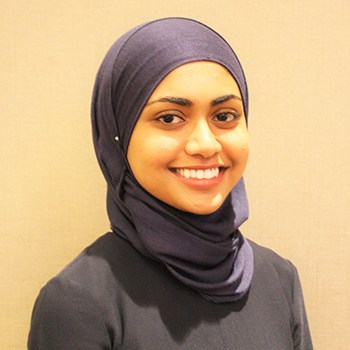
Assistant Prof. Atiyya Shaw will begin at UM-CEE in January 2023 and comes to us from the University of California, Berkeley, where she was a postdoctoral fellow in urban systems, working with Dr. Daniel Rodriguez. Prof. Shaw’s research prioritizes people as the most important element of transportation systems, with her research expertise centering on survey design and analysis, travel behavior modeling, and human factors engineering.
Prof. Shaw holds a BSCE, M.Sc degrees in Civil Engineering and Psychology, and completed her PhD in transportation engineering with a focus on travel behavior at Georgia Tech under Dr. Patricia Mokhtarian. Her graduate work was supported in part by an NSF Graduate Research Fellowship, as well as a two-year Dwight D. Eisenhower Fellowship.
“My entire research program is centered on thinking about people as the most important element,” said Prof. Shaw. “It fits organically with CEE’s mission of social impact and embodies all of the Strategic Directions. I think, though, that my research especially aligns with the Human Habitat Experience, and how to design infrastructure that’s very human-centered. As civil engineers, every system we build is for people and should be focused on the user.”
Sabine Loos
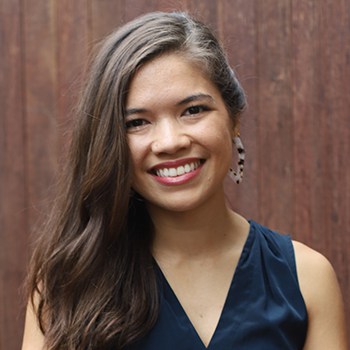
Assistant Prof. Sabine Loos will join us on August 28, 2023. She is an emerging leader of the natural hazards engineering field whose pioneering research surrounds the development of disaster information that centers users and the human experience. She applies geospatial modeling, risk analysis and visualization techniques to develop tools that inform effective and equitable disaster risk reduction and recovery. Through the lens of data, her work bridges engineering with the natural and social sciences to support vulnerable communities both domestically and in the Global South. Her research interests most closely align with CEE’s Strategic Directions of Adaptation and the Human Habitat Experience.
Prof. Loos recently completed her PhD, working with the Stanford Urban Resilience Initiative at Stanford University and the Disaster Analytics for Society Lab at Nanyang Technological University. She received her MS in Civil & Environmental Engineering from Stanford University in 2018 and her BS in Civil Engineering (with the honorific distinction summa cum laude) from Ohio State University in 2016.
Prior to joining us, Prof. Loos will be completing a United States Geological Survey (USGS) Mendenhall Fellowship in collaboration with the Natural Hazards Center at the University of Colorado, Boulder, developing methods for socially equitable risk assessments.
“I care about creating this culture that is welcoming, reflective of everyone and inclusive,” she said. “I want people to be able to feel comfortable, share their thoughts, make mistakes, and learn together so our community can grow.”
To hear more information directly from our new faculty, as well as others who have been with CEE for some time, please visit our CEE Connections & Directions Podcasts on our YouTube Channel.